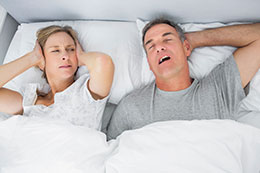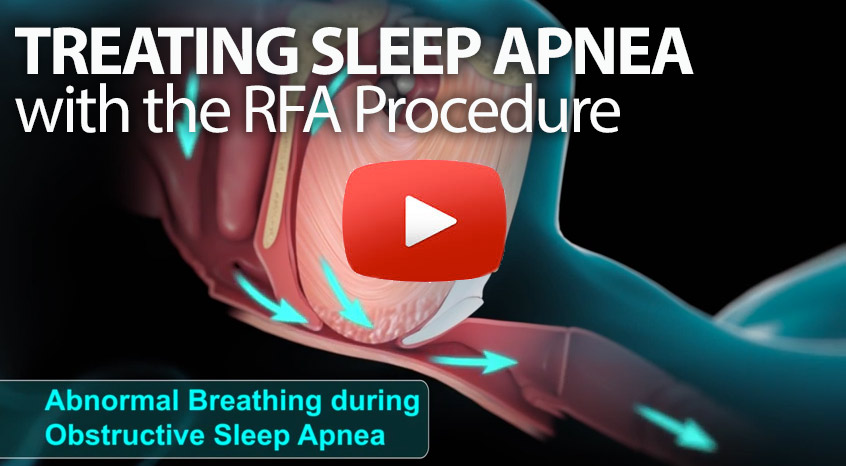 Sleep Disordered Breathing: Apnea Vs. Snoring
Sleep Disordered Breathing: Apnea Vs. Snoring
Snoring and apnea fall under the umbrella diagnosis of Sleep Disordered Breathing. This is a spectrum of abnormal breathing patterns, and is not a situation in which one has it or doesn’t.
- On the one end of the spectrum of sleep disordered breathing is the baby who breathes quietly, making no noise.
- On the other end of the spectrum is the overly obese adult who snores horrifically, falls asleep at meetings and at the theater, and has profound sleep apnea.
- Each individual has a sleeping pattern which falls somewhere on a spectrum between these two extremes.
- Almost all individuals with apnea snore loudly, but conversely, not all individuals who snore necessarily have sleep apnea. A person’s snoring can be mild, moderate, or severe.
- If the snoring becomes more significant, the loud snorer can also have mild, moderate or severe apnea.
Is it easy to differentiate between snoring and sleep apnea?
- Apnea is differentiated from snoring, in that during snoring, one has noisy breathing, but no apnea spells.
- The sleeper is unaware of one’s own snoring, and is equally unaware of one’s own apnea.
- Bed partners can be awakened and bothered by the snoring partner, as well as by the snoring apneic patient.
- Studies have shown that physicians cannot accurately predict whether one has apnea during an office evaluation.
- A physician can have an index of concern that one might have apnea, and would recommend a sleep study to make a definitive diagnosis.
- The most accurate diagnostic option is a sleep study.
What is a Sleep Study and what will it tell me?
- A sleep study, or polysomnogram, is an overnight test to ascertain whether one has apnea or not.
- If one does have apnea, the study can quantify whether it is mild, moderate or severe.
- This is usually determined by the RDI (respiratory disturbance index).
- The RDI quantifies how many abnormal breathing events one has per hour.
- The longer each apnea episode, and the higher the number of apnea events per hour, the worse the degree of apnea are.
About Us
If you or someone you know is in need of a better night’s sleep, contact us for a no obligation consultation. We are the sleep specialists at Chevy Chase ENT located in the Virginia, Maryland, and Washington D.C. metro area dealing with sleep apnea and sleep-related problems. We can help diagnose your condition, recommend whether a sleep study would be beneficial, and offer you a variety of treatment options including CPAP, Radio Frequency Ablation (RFA) and more.

